Lorem ipsum dolor sit amet, consectetur adipisicing elit. Voluptates natus esse, deserunt necessitatibus numquam amet rerum dicta in, iste sequi cupiditate distinctio voluptate et veritatis.
— quote source

OptiRun Services from Cytiva is a comprehensive service solution for your lab and BioProcess equipment.
We designed our service to focus on your outcomes — faster response times, more training, and more support for your team — all in a structure that is flexible and easy to manage.
Many of these webinars will cover important tips relating to shut down, start up, and operation of your Cytiva systems.
Register for the webinar below and learn more about how our service solutions can help protect your budget, timelines, and results.
Protein purification from start to finish
Ana Pinto, Support Scientist, Cytiva
Watch on-demand Recorded July 7, 2020
What are the most important details to consider when designing a purification protocol? From chromatography techniques to system choice, we will guide you through the initial concept, common troubleshooting, and the final technical issues most commonly faced during this process. Real life questions answered routinely by Cytiva’s scientific support scientists are the basis for this webinar.
Ana Pinto is part of our Cytiva scientific support team in EMEA. As a PhD student at the Universidade Nova de Lisboa, Portugal, she studied enzymes involved in the scavenging of reactive oxygen species in prokaryotes. She expressed and purified these enzymes using different chromatography techniques. Analytical and preparative chromatography, for functional or structural studies, was part of her daily work. After her PhD, Ana moved to Sweden to undertake postdoctoral work at the Karolinska Institute, where her research addressed the study of enzymes involved in post-translational modifications. As a Cytiva scientific support scientist, Ana supports our lab-scale chromatography customers.
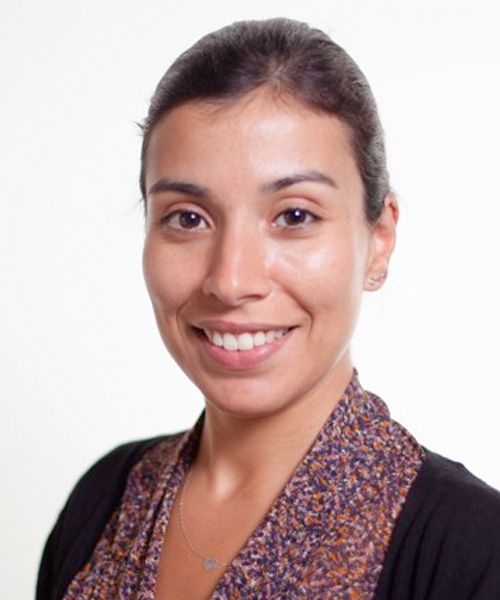
ÄKTA basic care and troubleshooting
Jim Tomfohrde, Field Technical Leader - Installations, Cytiva
Watch on-demand Recorded July 14, 2020
Proper care and maintenance of your ÄKTA chromatography system is essential to ensure optimal performance. Failure to maintain your system can lead to poor results, significant downtime, costly repairs, and substantial loss of time and money. In this webinar, we will discuss some simple strategies to keep your ÄKTA running smoothly. This includes discussions on proper shutdown and storage, bringing your ÄKTA back online, and calibrations and testing you can perform to verify everything is working properly. We’ll also discuss the basic care steps you should take, fundamental troubleshooting, and means of resolving common problems.
Jim Tomfohrde has been with Cytiva since 2003 and has held several positions within the service department working exclusively with ÄKTA chromatography instruments. He has worked as a field service engineer, regional technical leader, trainer, and is currently a member of the service support group for lab-scale chromatography instruments. In addition to providing training, mentoring, and support for our service engineers, he also conducts on-site training for customers to help them better understand their instruments and how to care for them. He has a BS degree in biology from the University of Wisconsin–Stevens Point and currently lives in Leesburg, Virginia, U.S.
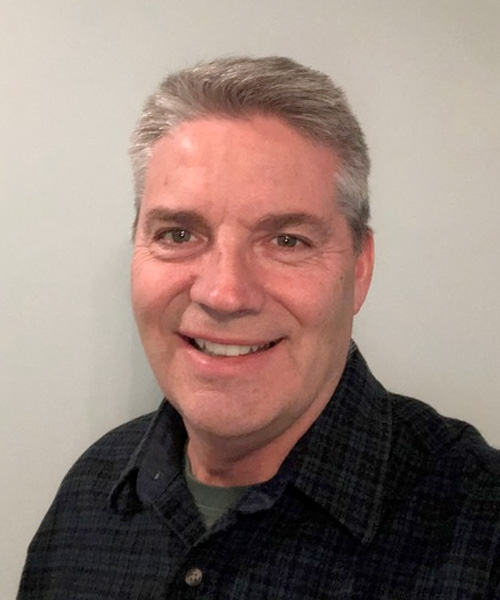
Why re-qualify? Part 1: The beginning and the basics
Fredrik Lif – Senior Leader, Services Product Management, Cytiva
Philip Daravingas – Commercial Leader, Services Product Management, Cytiva
Watch on-demand Recorded July 21, 2020
A two-part webinar series providing a basic understanding of qualification services concepts and terminology used when operating in a GxP environment with Cytiva products. This first session begins by briefly illustrating what qualification is and why it is important. Then we take a closer look at the common qualification services provided to Cytiva customers when installing a system or first entering a regulated environment. These services include Installation qualification, operational qualification and 21 CFR part 11 compliance testing.
Fredrik studied at Uppsala University and has been working for Pharmacia, Amersham, GE, and Cytiva for 22 years. Fredrik has worked in various roles during his tenure at the company, including distribution, supply chain, marketing, product management and various leadership positions. Currently, he is the senior leader for services product management, which includes the qualification services products as well as the remanufactured and repurposed instrument programs.
Philip Daravingas received his BS from the Massachusetts College of Pharmacy and Health Sciences, an MBA in marketing from Nichols College, and is certified Lean Six Sigma Black Belt from GE Healthcare. Philip has been working in the life sciences industry for the last 20 years in various commercial roles including sales, marketing and product management. Currently, he is the commercial leader and product manager for the qualification services products as well as the remanufactured and repurposed instrument programs.
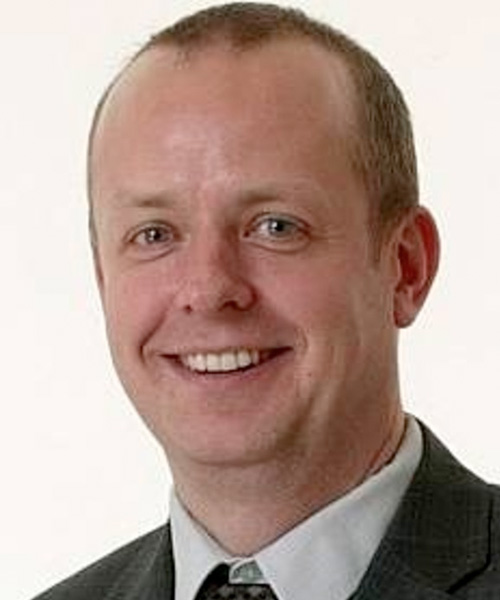
Why re-qualify? Part 2: Qualification as part of the lifecycle
Fredrik Lif – Senior Leader, Services Product Management, Cytiva
Philip Daravingas – Commercial Leader, Services Product Management, Cytiva
Watch on-demand Recorded July 28, 2020
The second of a two-part qualification webinar series continues our look at qualification services as it relates to the continued lifecycle of a Cytiva instrument. This session starts with the importance of maintaining a qualified state beyond an initial IQOQ. Then we discuss the common qualification services Cytiva provides for maintaining a qualified state throughout the instrument lifecycle — beginning with a closer look at the re-qualification procedure and ending with an examination of the change control procedure
Fredrik studied at Uppsala University and has been working for Pharmacia, Amersham, GE, and Cytiva for 22 years. Fredrik has worked in various roles during his tenure at the company, including distribution, supply chain, marketing, product management and various leadership positions. Currently, he is the senior leader for services product management, which includes the qualification services products as well as the remanufactured and repurposed instrument programs.
Philip Daravingas received his BS from the Massachusetts College of Pharmacy and Health Sciences, an MBA in marketing from Nichols College, and is certified Lean Six Sigma Black Belt from GE Healthcare. Philip has been working in the life sciences industry for the last 20 years in various commercial roles including sales, marketing and product management. Currently, he is the commercial leader and product manager for the qualification services products as well as the remanufactured and repurposed instrument programs.
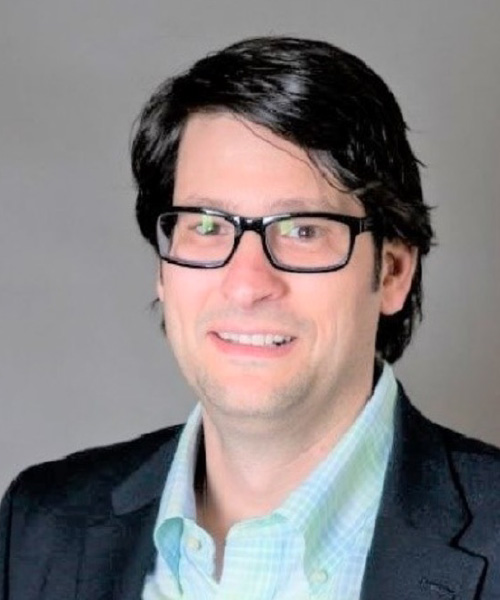
Biacore best practice for maintenance and troubleshooting
Don West – North America Field Technical Leader for Biacore Service, Cytiva
Watch on-demand August 4 | 11:00 AM EST 17:00 CEST
trouble free. The material presented will show you how to take your system offline and bring it back into service, as well as share best routines for chip storage, troubleshooting, and maintenance. Our field service engineers and technical leaders have gathered their best practices and are ready to share their knowledge with you. This webinar can help you maximize the uptime of your system and protect the quality of your results.
Don West is the North America Field Technical Leader for Biacore Service. Don is committed to the ongoing creation of technical expertise within the Biacore service team, working with our field engineers to deliver the high level of service that our customers expect and deserve. Don joined Biacore, incorporated in 2002, as the field service engineer for the southeastern U.S. Prior to joining Biacore, he was a certified biomedical equipment technician, servicing a variety of patient and diagnostic lab equipment. An Air Force veteran, Don holds an Associate’s degree in biomedical equipment technology from Alamance Community College, a Bachelor’s degree in Management/Marketing from Park University, and an MBA from East Carolina University. Don and his wife Joanne reside in Burlington, North Carolina, U.S.
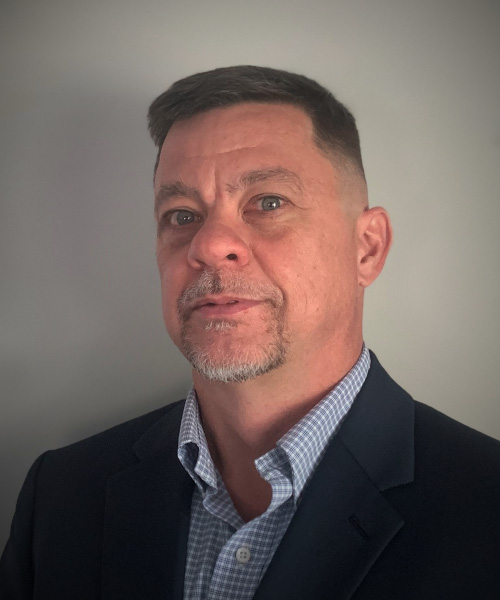
Biacore Insight Evaluation eLicensing
Anabela Brito Gabriel – Lead Support Scientist, USCAN Scientific Support, Cytiva
Watch on-demand August 11 | 11:00 AM EST 17:00 CEST
This webinar covers a detailed walkthrough of the Biacore Insight Evaluation Software eLicense activation and license configuration process. This versatile software enables data evaluation of interaction analysis performed using Biacore 8K+, Biacore 8K, Biacore T200, or Biacore S200 instruments. The eLicensing system and floating license format, introduced with the Biacore Insight software, may be new to existing users. This information will be most useful for users who need to activate Biacore Insight software licenses or for those who are interested to learn more about eLicensing based software.
Anabela is a member of the USCAN scientific support team. She started with Cytiva almost 20 years ago as a research assistant for the genomics R&D team working on projects supporting researchers on the Human Genome Sequencing Project. As a member of the scientific support team for the past 11 years, she has been providing customers with product support and guidance for the G&CR, imaging, Whatman and Biacore portfolios.

ÄKTAprocess basic care and troubleshooting
Steve LaMonica, BioProcess USCAN Field Technical Leader, Cytiva
Watch on-demand August 18 | 11:00 AM EST 17:00 CEST
Your bioprocess operation is critical. An unplanned breakdown can negatively impact your batch production schedule and ability to provide critical medicines for your customers. There are important steps and considerations to ensure your equipment is safe, clean, reliable, and ready to use when you need it. This webinar will cover cleaning protocols and where to find information specific to your system. We will also share the best practices from our field service engineers and technical leaders to help you improve system uptime through better day-to-day routine care and inspection techniques.
Steve served 20 years in the U.S. Navy as a nuclear power technician and supervisor. He has received training in multiple fields including chemistry and heat transfer/fluid flow. He joined Amersham Pharmacia Biotech in 2000 as a BioProcess field engineer. Steve has moved through a succession of field and customer support roles since 2011. He is currently the BioProcess field technical leader for the U.S. and Canada, and the training leader for the Americas.
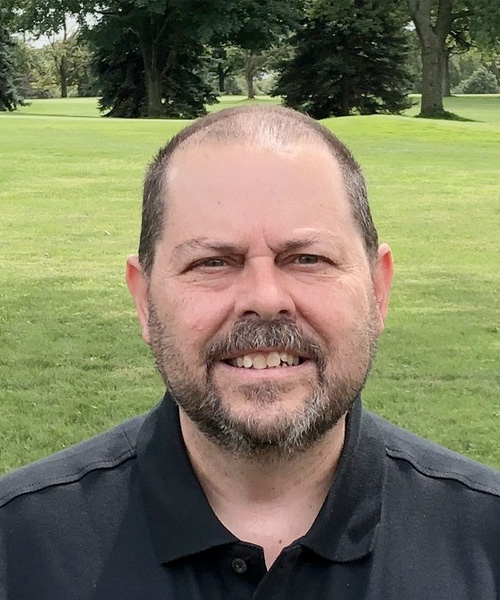
Wave/Xuri Basic care, calibration, and troubleshooting
Thomas Imranyi , Lead Service Engineer, Cytiva
Watch on-demand August 25 | 11:00 AM EST 17:00 CEST
Proper routine care procedures, calibration verification, and basic troubleshooting are critical to ensuring your WAVE/Xuri 25 system operates in peak condition and contributes to your success. We’ll help you understand when service may be required, who to call, and what information will be important to help expedite diagnosis and repair. Our field service engineers and technical leaders have gathered their best practices and are ready to share their knowledge with you — helping you maximize the uptime of your system and provide optimal conditions for your cell production.
Thomas Imranyi has a long history with the WAVE Bioreactor platform. He transitioned from WAVE Biotech LLC to GE Healthcare in 2004 and to Cytiva in early 2020. During his tenure, Thomas has witnessed the evolution of the WAVE Bioreactor platform and has become a technical expert in service and support. Thomas gained an intimate knowledge of the inner workings and accessories of WAVE Bioreactors while working on the manufacturing floor and has held positions from field service engineer and technical trainer to field technical leader. For the last nine years, he has been an integral member of the Global Service Engineering Team for new product introductions as they relate to service and serviceability.
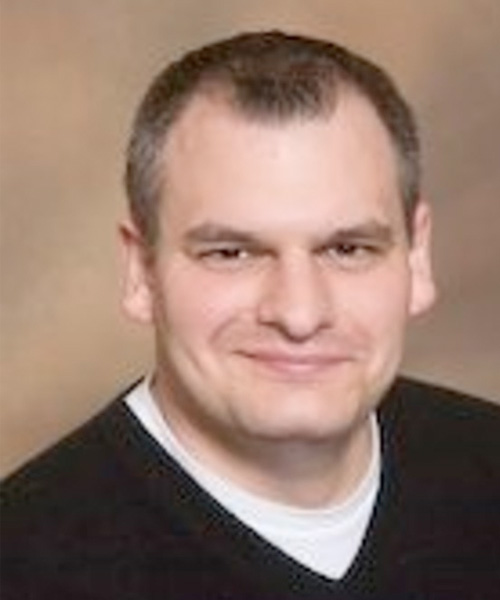
Single-use and sustainability: continued studies using LCA tools
Bill Whitford, Strategic Solutions Leader Cell Culture, Bioprocess, Cytiva
The issue of plastic materials in our environment has been of recent interest. The biotechnology community has responded by examining the effects of single-use systems employed in biomanufacturing. It is natural to emphasize a particular set of environmental concerns over others, and especially the more visible ones. But, in supporting truly sustainable manufacturing systems, it is important to consider all relevant types of pollution or environmental stress. The Life Cycle Assessment (LCA) is a science-based approach for evaluating the environmental impacts, benefits, trade-offs, and burden shifts of a process in an objective format. Cytiva has performed a second, extended LCA study of biomanufacturing that considers additional equipment scale, product types, production modes, and installation placements. It compares traditional stainless steel, single-use, and hybrid facilities in the production of Monoclonal antibodies (MAb) and Adenovirus vaccines (Adv), across the full process train including upstream and downstream operations. It includes the effect of many new parameters, including 1) such regional distinctions as shipping distances and power and water sources, and 2) various end-of-life disposal options.
Bill Whitford is Strategic Solutions Leader in Logan, UT with over 20 years experience in biotechnology product and process development. He joined the company as an R&D Leader developing products supporting protein biological and vaccine production in mammalian and invertebrate cell lines. Products he has commercialized include defined hybridoma and perfusion cell culture media, fed-batch supplements and aqueous lipid dispersions. An invited lecturer at international conferences, Bill has published over 250 articles, book chapters and patents in the bioproduction arena. He now enjoys such activities as serving on the Editorial Advisory Board for BioProcess International.
Real-time control executed by in-line sensing
Helena A.M. Öhrvik, PhD, Scientist, R&D BioProcess, Cytiva
Register Wednesday, 10 June, 2020 10:00AM EDT | 16:00 CEST
Biopharmaceutical productivity and flexibility can be increased by combining single-use technology, in-line sensors, and automated process control. In this study we combined these tools to enhance process control by feedback loops, further reducing manual handling and increasing process robustness. Here, we demonstrate the flexibility of using the single-use Xcellerex™ XDR10 bioprocessing system, an integrated in-line sensor for real-time monitoring and automated in-process control. First, the in-line InCyte probe was used to monitor the viable cell density and control a steady state perfusion via an automated feedback loop controlling the pump for cell bleeding. Viable cell density data was processed with Wonderware™ automation software to accomplish a steady state perfusion by cell bleeding. Second, we combined N-IR in-line monitoring with a feedback loop for glucose control to obtain a fully automated control of this nutrient. At the same time, we received real-time data for lactate, viable cell density, and IgG concentration. The N-IR spectroscopy data was processed in real time, and predicted nutrient concentrations were communicated to the Wonderware software, which controlled a pump on the XDR system. In summary, our data supports use of in-line sensors for better process control in upstream applications. With the thoughtful configuration of sensors and automation software to control multiple process parameters, the XDR system offers flexibility and enhanced in-process control.
Helena Öhrvik is Scientist at Cytiva in R&D. After receiving her Ph.D. in Pharmacology in Uppsala, Sweden, she moved to North Carolina, US, to do her post-doctoral training at Duke University. Her research involved the expression and regulation of recombinant membrane bound proteins in cell cultures. Since Helena joined Cytiva, she has focused mainly on continuous processes, including perfusion, and new inline technologies for the bioprocess field.
Bridging Cell and Gene Therapy Process Development with Next Generation Automation
Shannon S Eaker, PhD, Cell Therapy Tech Sales Leader, Enterprise, Cytiva
Register Wednesday, 17 June, 2020 10:00AM EDT | 16:00 CEST
As cell and gene therapy processes turn to scalable manufacturing processes, many organizations are learning from previous bioprocess advances in automation and digitization. Adding these advances early in Process Development (PD) activities can provide speed and efficiency when entering technology transfer, clinical trials and commercial manufacturing. Knowledge and expertise from bioprocess learnings in eSOP’s, eBR’s, and facility dashboards can streamline processes, while reducing labor and risks when producing cellular therapies.
Shannon received his PhD from the University of Tennessee, Knoxville in Biochemistry, Cellular and Molecular Biology. His expertise is around T-cell, HSC, and ES/iPSC cell biology, and has been with Cytiva for more than 7 years. He is a member of the International Society for Cell Therapy (ISCT) Process and Product Development (PPD) committee, and has authored numerous papers within the field of cell biology and manufacturing. He is currently the Technical Leader within Cytiva's Cell Therapy Enterprise Solutions group. Shannon lives with his wife and 2 children in Knoxville, TN.
Vaccine production in SU technology – how to maintain closed system processing
Chor Sing Tan, Senior Single Use Technology Applications Leader, Cytiva
Register Wednesday, 24 June, 2020 10:00AM EDT | 16:00 CEST
Vaccine science has come a long way since Edward Jenner used pus to stop a child from catching smallpox. Synthetic, recombinant, and DNA vaccines have been developed to tackle various infectious diseases. Adoption of cell culture–based systems are also maturing, and vaccine manufacturers are beginning to leverage proven process technology from the broader biotechnology industry to enable multi-product manufacturing in an aseptic manufacturing environment. Single-use technology is one technology heavily adopted by the vaccine manufacturers to meet this requirement. Maintaining processing system closure is one of the key elements of aseptic manufacturing. This presentation will examine key elements of a closed manufacturing system based on single use technology: integrity, bioburden and cleanliness, life cycle of use, boundary and material. Two case studies (final fill and cell cultivation) will be presented with attention given to the uniqueness of single use technology. Examples include use of sensitive integrity test methods such as helium integrity testing, relevance of single-use system shipping test to container closure, and maintenance of single use component design space.
Chor Sing is the Senior Single Use Technology Applications Leader ay Cytiva. In this role, Chor Sing provides leadership and strategic guidance to the Bioprocess business. His main area of expertise is in adoption and implementation of single-use bioprocessing technologies, and he often acts as customer advocate in execution alignment. Since joining Cytiva, Chor Sing has served in several business and science functions including sales, marketing and scientist roles in bioprocess technologies involving modular manufacturing solutions, bioreactors, chromatography, protein expression and filtration. Prior to joining Cytiva, Chor Sing was Senior Scientist and Bioprocess Engineer for CSL Behring with expertise in blood plasma processing. Chor Sing received both his Ph.D. degrees in chemical and biomolecular engineering from the University of Melbourne, majoring in novel protein separation and biopolymer engineering.
A scalable adeno associated virus production process, from cell culture to purified bulk
Åsa Hagner Mcwhirter, Senior Scientist, Cytiva
Register Wednesday, 1 July, 2020 10:00AM EDT | 16:00 CEST
Adeno-associated virus (AAV) vectors are increasingly being used in clinical trials for gene therapy applications. Manufacturing of safe and efficacious clinical-grade virus relies on a scalable and cost-effective production process. In this study we have combined experimental work and process economy calculations to develop an efficient and scalable process for AAV production. Each process step, from AAV production in suspension cell culture to purified bulk product up to the 10L scale, was evaluated and optimized. We used AAV2 for process development, since this is the most used AAV vector in addition to serotype 5, 8, 9, and various synthetic capsid variants. AAV2 expressing green fluorescent protein (GFP) was used for process development to facilitate analysis. First, suspension culture of HEK 293T cells adapted to serum-free medium and triple plasmid transfection were optimized using a DoE strategy for transfection efficiency and AAV2 production. The conditions were further developed for production in a single use stirred tank bioreactor system. Novel affinity and ion exchange based purification step alternatives were compared, including different chromatography resins and membrane formats. Finally, ion exchange chromatography and core bead technology were evaluated as an alternative to size exclusion chromatography for the polishing step before the formulation into storage buffer. Analytical methods for virus titer are challenging and depend on purity and quality of the sample. For viral genome titer qPCR was used and for total virus titer ELISA and HPLC methods were used. For infectious virus titer, we used a flow cytometry-based assay counting GFP producing cells. Based on analytical data different downstream process alternatives were compared regarding load capacity, recovery, reduction of empty capsids, and purity. We propose a robust and scalable process with a favorable process economy.
Bio: Åsa is a Senior Scientist at GE Healthcare’s Life Sciences business, now Cytiva, in Uppsala, Sweden. She has been 17 years in R&D focusing on applications and product development within downstream purification and analytics. During the last 4 years she has been working with viral vectors. In her current role, she is a team leader for several research projects and customer collaborations. Previously, she worked with proteomics and fluorescent based protein analysis. Prior to joining GE Healthcare’s Life Sciences business, now Cytiva, Åsa did a PhD and a post-doc in Medical Biochemistry at Uppsala University within the field of Glycobiology.
Evolution of the Fibro chromatography platform: scale-up and what is beyond mAbs
Ian Scanlon, Staff Research Engineer, Cytiva
Register Wednesday, 8 July, 2020 10:00AM EDT | 16:00 CEST
Fibro chromatography for scalable monoclonal antibody (mAb) purification was recently launched to address the evolving needs of drug developers and manufacturers. This single-use technology uses a highly alkaline-stable, engineered protein A PrismA ligand. The rapid cycle times, which Fibro chromatography enables, present a new paradigm for process development. Hundreds of process parameter conditions can be investigated each day using ÄKTA™ chromatography systems and UNICORN™ control software. For large-scale manufacturing, the technology offers new processing strategies with processing of about 15 kg mAbs per day. Here we will showcase the technology’s current state and outline the roadmap for future development of the platform. We will show data from large-scale protein A capture Fibro units for GMP-regulated work. The integration of the Fibro capture step into a complete mAb process will also be shown. We will discuss future developments regarding other ligands and applications for the fiber matrix, including mAb polishing, capture and resolution of larger therapeutic complexes.
Ian Scanlon has over 20 years experience in separation and chromatography, ranging from small molecule therapeutics, through modified triphosphates, DNA and proteins. For the past five years Ian has been part of the development of the Fibro Chromatography technology, working with groups across biopharma in the EMEA and the US to develop applications.
A Pragmatic Approach to the Buy vs Build Manufacturing Dilemma
Joseph Phillips, Ph.D. - Senior Vice President & Head of Pharmaceutical Development ArmaGen, Inc.
Nacim Haderbache - Commercial Strategy Leader Cytiva
Carol Houts, Director of Regulatory Affairs, Germfree, Inc.
The decision to outsource manufacturing or produce a therapeutic product in house plagues many biopharmaceutical executives. Each decision requires a careful assessment of multiple variables such as timelines, IP protection, forecast, capital allocation, technical capabilities, and market strategy. Every situation is unique and typically requires compromises and often results in valuable lessons learned. In this webinar you will be presented a case study of one economic assessment of a buy versus build decision model. The panel will discuss other scenarios to generate a useful discussion of the possible options and the potential outcomes.
You will learn:
- Financial modelling of buy vs build scenarios
- Considerations when manufacturing at a CM
- Benefits of outsourcing or insourcing
- In-house manufacturing options for retrofitting existing structure, stick-built or modular builds
- Technical challenges when manufacturing gene therapies
Four Steps Toward Connected Biomanufacturing: A Pragmatic Approach to Start to Finish Processing
George White, Product Strategy Manager, Cell & Gene Therapy, Cytiva
29 April 10:00AM EDT | 16:00 CEST Register
Are you having challenges with data collection, remote equipment monitoring or digital connectivity? Do you think automation is only for commercial manufacturing? No matter what phase you are, automation can help you accelerate. This year, Cytiva introduced Chronicle™ - a software designed specifically to address challenges in cell therapy. Capable of eSOPs, batch release by exception, visibility of global manufacturing sites, data collection, and more, Chronicle grows with your output and opens new possibilities your current method of paper and pen or decentralized connectivity simply cannot. Join us for a presentation on how Chronicle is revolutionizing the advancements and scalability of cell therapy manufacturing.
George has 15 years’ experience in the cell and gene therapy industry, predominantly in commercial roles supporting academic research through to industrial scale up and manufacture. George joined GE Healthcare’s Life Sciences business, now Cytiva, in 2013 and has been an actively involved in the integrations of the Biosafe and Asymptote businesses. George recently moved from his role as Commercial GM for EMEA, to Global Product Strategy Manager to further support the development products and services into the Cell and Gene Therapy space.
Four Steps Toward Connected Biomanufacturing: A Pragmatic Approach to Start to Finish Processing
George White, Product Strategy Manager, Cell & Gene Therapy, Cytiva
29 April 10:00AM EDT | 16:00 CEST Register
Are you having challenges with data collection, remote equipment monitoring or digital connectivity? Do you think automation is only for commercial manufacturing? No matter what phase you are, automation can help you accelerate. This year, Cytiva introduced Chronicle™ - a software designed specifically to address challenges in cell therapy. Capable of eSOPs, batch release by exception, visibility of global manufacturing sites, data collection, and more, Chronicle grows with your output and opens new possibilities your current method of paper and pen or decentralized connectivity simply cannot. Join us for a presentation on how Chronicle is revolutionizing the advancements and scalability of cell therapy manufacturing.
George has 15 years’ experience in the cell and gene therapy industry, predominantly in commercial roles supporting academic research through to industrial scale up and manufacture. George joined GE Healthcare’s Life Sciences business, now Cytiva, in 2013 and has been an actively involved in the integrations of the Biosafe and Asymptote businesses. George recently moved from his role as Commercial GM for EMEA, to Global Product Strategy Manager to further support the development products and services into the Cell and Gene Therapy space.
Four Steps Toward Connected Biomanufacturing: A Pragmatic Approach to Start to Finish Processing
George White, Product Strategy Manager, Cell & Gene Therapy, Cytiva
29 April 10:00AM EDT | 16:00 CEST Register
Are you having challenges with data collection, remote equipment monitoring or digital connectivity? Do you think automation is only for commercial manufacturing? No matter what phase you are, automation can help you accelerate. This year, Cytiva introduced Chronicle™ - a software designed specifically to address challenges in cell therapy. Capable of eSOPs, batch release by exception, visibility of global manufacturing sites, data collection, and more, Chronicle grows with your output and opens new possibilities your current method of paper and pen or decentralized connectivity simply cannot. Join us for a presentation on how Chronicle is revolutionizing the advancements and scalability of cell therapy manufacturing.
George has 15 years’ experience in the cell and gene therapy industry, predominantly in commercial roles supporting academic research through to industrial scale up and manufacture. George joined GE Healthcare’s Life Sciences business, now Cytiva, in 2013 and has been an actively involved in the integrations of the Biosafe and Asymptote businesses. George recently moved from his role as Commercial GM for EMEA, to Global Product Strategy Manager to further support the development products and services into the Cell and Gene Therapy space.